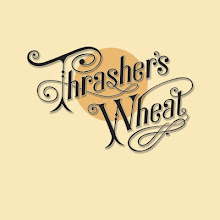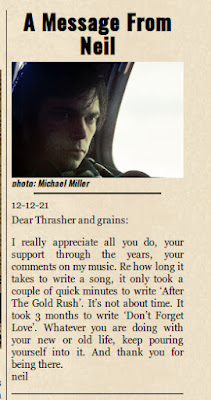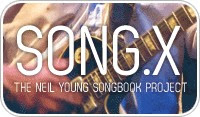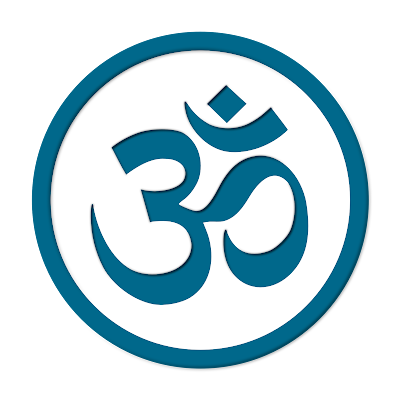Neil Young Rebrands Crazy Horse?! + Comment of the Moment
Neil & the Horse
It would appear that Neil Young has "rebranded" his band Crazy Horse with a new logo and name change.
"The Rider" no longer appears on horse back in the iconic logo. And "Crazy" has been dropped to simply "The Horse".
Which brings us to our Comment of the Moment on Neil Young w/ Crazy Horse 2024 Love Earth Concert Tour by Meta Rocker:
re: the band's name and emblem change.
To my knowledge, we've been referring to Neil's most important band as "The Horse" for decades ("don't spook the Horse!" "smell the Horse!", etc.), so that alteration almost didn't register with me.
It does lead to the interesting topic of NY's music and art in relation to Native American cultures. It seems to come from a place of genuine interest and even spiritual connection, but at the same time, Neil's understandings will have been informed by what he learned in Canadian schools in the 1950s, "cowboys and Indians" movies, and so on.
In other words, white folks probably have a different, "outsider's" view of what Native American is and means, as compared to the lived experiences of First Nations people. It's too easy for these ideas to turn into pastiches and caricatures, which may get ingrained as stereotypes. These can be either highly negative or over-romanticized (think of the "noble savage" trope). In either case, the result is objectification and othering. It's probably related to the empiricist tendency to sort everything--and everyone--into discrete groupings, as opposed to a more holistic worldview, but I'm getting too deep in the weeds now.
I do think NY is cognizant of these ambiguities, to some extent.
An eco-protest song titled "Indian Givers" is fairly self-aware. I remember my grandmother casually using that expression. It likely became a habit because it made us laugh as very young children, insofar as we'd never heard it anywhere else: one of those weird "old people" sayings, where you understand from context what they mean but it makes so little sense as to seem goofy. I can't remember her using any other racialized language (does "You're a better man than I am, Gunga Din!" count?), but it does go to show how these images and ideas get embedded through cultural transmission.
Thanks for the CotM here Meta Rocker. Your nuanced insights are always welcomed here @ TW. Yet we fear that historical revisionism as gotten completely out of control as the gatekeepers become increasingly desperate while The #BigShift gathers momentum.
All this said however, if we look at the marketing for the 2024 “Love Earth Tour” of Neil Young w/ Crazy Horse, it would seem that the Crazy Horse name is still intact, but the horse is riderless. So the inconsistency remains consistent.
So, if we take the "crazy" out of the "The Horse", will there be any spook left?
Back in 2012, we posted on National Geographic Magazine's August 2012 cover of In The Spirit of Crazy Horse. Our hope was that folks would follow the NG link and go read the wonderful article. We suggested that maybe modern humans need to go back and learn from indigenous peoples about how to live sustainably.

from album art for Americana by Neil Young & Crazy Horse (2012)
Please note our previous piece Crazy Horse: A Noble American History
and the ensuing uproar. As evidenced by the post, we have nothing but
the utmost respect for Native American history, And for that matter,
indigenous peoples around the world.
From Time to Get Crazy: What We Can Learn from Native American Resistance to Colonists' Greed by Chris Hedges:
There are few resistance figures in American history as noble as Crazy Horse.
He led, long after he knew that ultimate defeat was inevitable, the most effective revolt on the plains, wiping out Custer and his men on the Little BigHorn. “Even the most basic outline of his life shows how great he was,” Ian Frazier writes in his book “Great Plains,” “because he remained himself from the moment of his birth to the moment he died; because he knew exactly where he wanted to live, and never left; because he may have surrendered, but he was never defeated in battle; because, although he was killed, even the Army admitted he was never captured; because he was so free that he didn’t know what a jail looked like.” His “dislike of the oncoming civilization was prophetic,” Frazier writes. “He never met the President” and “never rode on a train, slept in a boarding house, ate at a table.” And “unlike many people all over the world, when he met white men he was not diminished by the encounter.”
Crazy Horse was bayoneted to death on Sept. 5, 1877, after being tricked into walking toward the jail at Fort Robinson in Nebraska. The moment he understood the trap he pulled out a knife and fought back. Gen. Phil Sheridan had intended to ship Crazy Horse to the Dry Tortugas, a group of small islands in the Gulf of Mexico, where a U.S. Army garrison ran a prison with cells dug out of the coral. Crazy Horse, even when dying, refused to lie on the white man’s cot. He insisted on being placed on the floor. Armed soldiers stood by until he died. And when he breathed his last, Touch the Clouds, Crazy Horse’s seven-foot-tall Miniconjou friend, pointed to the blanket that covered the chief’s body and said, “This is the lodge of Crazy Horse.” His grieving parents buried Crazy Horse in an undisclosed location. Legend says that his bones turned to rocks and his joints to flint.
His ferocity of spirit remains a guiding light for all who seek lives of defiance.
Long live Crazy Horse! But never Spook The Horse.


Neil Young & Crazy Horse 2014 Europe Tour
- EXCLUSIVE: Crazy Horse Drummer Ralph Molina Interview
- "Smell the Horse": Ragged Glory Extended +
Comment of the Moment: NYA FIRST LISTEN/WATCH: ‘Way Down In The Rust
Bucket’ - Neil Young w/ Crazy Horse
- Year of the Horse Film Review and Interviews on the making with Crazy Horse, Neil and Director Jim Jarmusch
- Year of the Horse - Interview in France's Les Inrockuptibles, July 1997
- Year of the Horse - Film Review
- Crazy Horse Biography - Reprise Records, 1997
- Frank Sampedro Interview - Torhout Festival, 1996
- Poncho Interview - Halifax Daily News, 11/1/96
- Interview: Crazy Horse and Neil Young Maintain Special Relationship, by Barry Gutman, Music Wire, ~9/96
- Billy Talbot Interview - Rip it Up, ~8/96
- Crazy Horse Album Reviews- by Robert Christgau
- Years of the Horse

Neil Young w/ Crazy Horse:
"3rd Best Garage Band in the World"
~~Bill Graham

Induct Neil Young w/ Crazy Horse
Into the Rock and Roll Hall of Fame
#CrazyHorse4HOF
Labels: @NeilYoungNYA, #CrazyHorse4HOF, #DontSpookTheHorse, #InductTheHorse, #MayTheHorseBeWithYou, #MoreBarn, album, concert, crazy horse, neil young





































 Human Highway
Human Highway

















 Concert Review of the Moment
Concert Review of the Moment





 This Land is My Land
This Land is My Land

 FREEDOM In A New Year
FREEDOM In A New Year









 *Thanks Neil!*
*Thanks Neil!*




![[EFC Blue Ribbon - Free Speech Online]](http://www.thrasherswheat.org/gifs/free-speech.gif)











 The Unbearable Lightness of Being Neil Young
The Unbearable Lightness of Being Neil Young Pardon My Heart
Pardon My Heart



 "We're The Ones
"We're The Ones  Thanks for Supporting Thrasher's Wheat!
Thanks for Supporting Thrasher's Wheat!




 This blog
This blog 
 (... he didn't kill himself either...)
#AaronDidntKillHimself
(... he didn't kill himself either...)
#AaronDidntKillHimself









































































 Neil Young's Moon Songs
Neil Young's Moon Songs




 Civic Duty Is Not Terrorism
Civic Duty Is Not Terrorism Orwell (and Grandpa) Was Right
Orwell (and Grandpa) Was Right


 What's So Funny About
What's So Funny About 



12 Comments:
Please be advised that there is no known photo of Crazy Horse. Tashunka Witko was a holy man of the Lakota, who had given up his role as a military opponent to the colonization of his ancestral territories just months before he was assassinated in Fort Robinson. It is highly unlikely that he would have his picture taken. Some descendants of Crazy Horse's family that visited with us in Germany about 20 years ago confirmed that there is no known photograph of their famous ancestor. Through the decades there have been various claims that a photograph actually depicts Crazy Horse, but none of them could be proven to be true. The portrait above may show a Lakota person, maybe Chief Red Cloud (?) in younger years. Also the US mail stamp with Crazy Horse's face is just an imaginary portrait.
Thanks much Dionys. Appreciate that note.
We've added an update above on post referencing your comment on images.
peace
"Started dreaming, saw the rider once again..."
This article makes me think of I'm the Ocean.
The broken circle goes, over and over again...
so, I was giving a paper at the School of Visual Art in NYC. There were three of us in a session on images of oppression. (I am not any sort of expert on this topic, I was writing about a short story by Louise Erdrich- ) This scholar from North Dakota, a Native American, gave a flat out brutal critique of mascots (of all types). He used the images. He prefaced by discussing his upbringing on a reservation, where he got rickets which gave him a limp for life. I will never forget it and the sheer emotional impact of his testimonial in his preface was just devastating.
Somehow, even with this experience, I never thought of the band "Crazy Horse" as a problem. Maybe it is similar to naming a novel "Crazy Horse"?
Thanks, thrash! I’ll clarify re: empiricism. My intent is not to dog on scientific method; far from it. But it does come from cultural, historical contexts and can be abused or mishandled by people with power (see also: eugenics). There’s a funny song, Let’s all be Empiricists, from the musical Zero Patience, that expresses the pitfalls of rigid labeling and categorizing. Be aware, if you ever track down this film, it makes most movies NY has been involved in look almost conventionally tame.
In other words: the problems aren’t with the essential idea of learning through close observation and experimentation. They come from the ethics and prejudices of practitioners. There’s a subjective element to data *interpretation*, as the very word implies. Subjective perception is tricky, as it can lead to good insights but can also skew a person’s judgment in damaging ways. In pro research, there are processes (peer review, methodology standards) to ameliorate the shortcomings. Scientific inquiry is worthy and often invaluable. Then again, you get things like companies funding studies to obtain their desired results. Critical thinking, which in my view involves a measure of subjectivity, is always paramount.
I think analytic philosophy has by now covered the issues raised by MR. When I say covered I mean recognized and explored deeply. William James, for instance, was acutely aware of the problems with "empiricism" from the standpoint of practitioners and his arguments and ideas evolved through pragmatism. Wittgenstein clearly saw through the pretensions and gross contradictions of empiricism (then it was positivism). Feminist thought is right now using the tools of analytic philosophy to explore these issues.
Thanks for these leads, Abner. Didn’t want to be misread as contrarian or non-committal about matters of fact-finding. Life involves uncertainty—but not about everything! If one accords much value to the idea of freedom, though, some uncertainty seems like a prerequisite—i.e. that outcomes are not wholly predetermined. Social construction is one view of how people find agency. My thinking often comes back to creativity and intuition. “Intuition”, though, could be a chain of (subconscious?) reasoning I’m not fully aware of and so can’t articulate concretely. Thought involves reasoning patterns—and neural connections— which, once established, we don’t always notice.
Maybe the storyteller, the myth-maker or just a person trying to articulate human experiences symbolically, is sometimes relatively at ease with uncertainty, in ways the philosopher might find less palatable? (Of course, one can have both roles; they aren’t mutually exclusive!) Each person has particular perspective which hopefully grows and morphs with learning. Where that vantage point originates, and what effects it has, are another question. Hopefully I am not falling prey to the excesses of Romanticism!
Uncertainty is an axiom for me as it ties to finitude. when it comes to the most important questions have you ever known anyone, other than a fool, who is certain?
The storyteller is the real deal, forget the philosopher unless you enjoy anguish.
I’m careful to emphasize that I’m thinking of “storyteller” and “philosopher” as roles, not necessarily identities. Doing art and/or philosophy could be an expression of innate characteristics, but I’m unconvinced that such traits would cohere into an essential identity. This is another shade of the old parts vs. whole discussion.
In fact, looking at Vedic (Hindu, Buddhist) tradition, with which I’m somewhat familiar, there seems a big overlap between stories and philosophy. Parables are more likely to connect with a wider audience than formal philosophy; there are cognitive reasons humans use metaphor. It may be that contemporary society has lost, or mislaid, some of this thinking, due to a broad focus on realisms and (especially) literalism.
if the idea of using symbols and abstractions to get closer to truth seems paradoxical, I’ve sometimes found making space for paradox to be a good anxiety reliever.
“Cultural Appropriation makes the native imagery questionable at best.
I almost got a tattoo of the NY & Crazy Horse “rider” but my adult kids told me it was no longer “cool” to do that.
I am glad I didn’t get the tattoo. I don’t have any, and all for the same reason: regret.
I have great respect for Native / First Nations culture and ideology, partly because of they were emulated, Earth would not be headed tapidly towards the extinction of the human race!
Your Brother Alan in Seattle
One of my earliest, very hazy memories must be of my mother taking me to see a performance or presentation by Native American musicians and dancers. I don't know the tribe and/or performing group by name--I couldn't have been more than 3 or 4 years old--but I do remember colors, movements: mesmerizing--as a little white boy, I'd certainly never seen anything like it. Dancing, drumming, feathers.
Not sure if the word "performance" is really suitable, in that they may have been showing us dances and rituals that were party of their daily living. The traditional setting for such events may not involve a rigid distinction between audience and performer.
The images in mind mind are vague, sensory impressions. A lot like remembering a dream.
Very young children may have sensory experiences, rather than intellectual ones per se. Grownups can think more abstractly, using concepts or ideas to map meaning onto lived experiences. Whereas kids start out by watching, listening, touching, tasting--absorbing the world and, crucially, learning the difference between real and make-believe. Anything they see or hear may feel equally "real" to them. Think about that next time you're around a small child.
Not sure how relevant all this is, but this topic actually "woke up" a memory in the deep recesses of my mind.
Post a Comment
<< Home